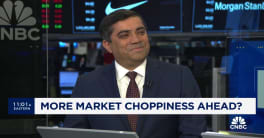Members of the Mortgage Bankers Association (MBA) are holding their annual convention in San Diego this week and the opening day was accompanied by the usual flurry of press releases including forecasts from the association's economists for the coming year.
The projections, from Mike Fratantoni, Chief Economist and Senior Vice President for Research and Industry Technology; Joel Kan, Associate Vice President of Economic and Industry Forecasting; and Marina Walsh, CMB, Vice President of Industry Analysis, are rooted in expectations of robust homebuyer demand from millennial households and those seeking more space. These factors and still-low mortgage rates will provide favorable tailwinds for the housing market next year. Headlining the forecast is growth of 9.0 percent in purchase mortgage originations in 2022. This would bring those originations to a new record of $1.73 trillion.
Refinancing, however, will decline 14 percent this year, to $2.26 trillion and the panel of experts expect a precipitous drop in 2022. The projected $860 billion refinance total will represent a -62 percent year-over-year change. Even with purchase originations rising, the drag provided by refinancing's deep dive will lower total mortgage originations next year by a third, to $2.53 trillion. Further out on the forecast horizon will be another record high for purchase originations in 2023, but higher mortgage rates and fewer eligible homeowners will lead to further declines in refinance volume.
According to Fratantoni, MBA's 2022 forecast assumes a continuation of strong economic growth amidst eventual easing of the supply chain constraints that have curbed some economic activity this year. "The economy and labor market rebounded in 2021, but overall growth fell short of expectations because of stubborn supply chain issues that fueled faster inflation, slowed consumer spending, and presented challenges in filling the record number of job openings available," he said. "With inflation elevated and the unemployment rate dropping fast, the Federal Reserve will begin to taper its asset purchases by the end of this year and will raise short-term rates by the end of 2022."
As for mortgages interest rates, MBA sees the 30-year fixed-rate reaching 3.1 percent by the end of this year. It will then rise to 4.0 percent by the end of 2022.
"2022 should be another strong year for the housing market. Home builders will have more success overcoming current building material shortages and should be able to increase the pace of construction to meet the sizable demand for buying," said Fratantoni. "More newly built homes and more homeowners listing their homes for sale should lead to some deceleration in home-price growth next year. This is good news for the many would-be buyers who are currently priced out or delaying decisions because of low supply conditions and steep home-price appreciation."
With home prices reaching record highs over the past year, and more recent new construction being larger and more expensive, average loan sizes have also grown and affordability has weakened - especially for first-time buyers. Kan does expect some of these affordability challenges to ease as for-sale inventory grows and home-price growth moderates.
"Credit availability is still around 30% lower than pre-pandemic levels. Mortgage supply will need to increase modestly so that qualified buyers can get access to financing for their home purchase. This will be important for the wave of potential first-time homeowners who are approaching prime homeownership age," added Kan.
According to Walsh, the industry is moving away from the record-high, extraordinary production profits of 2020. As production volume declines and the market shifts toward fewer refinances and more purchase activity, competition will further stiffen. In this environment, lenders can only chase market share for so long before there are substantial consequences to the bottom line.
"Many lenders will rely more heavily on their servicing business to achieve financial goals. Higher mortgage rates mean fewer prepayments and a longer revenue stream of servicing fees combined with higher mortgage servicing right valuations," she said. "However, the servicing outlook is more complicated today, with the expiration of many COVID-19-related forbearances and the need to place borrowers into post-forbearance workouts. Servicing costs may rise as servicers work to meet the needs and requirements of borrowers, investors, and regulators."
"The job market should continue to improve as the pandemic is hopefully behind us, helping to get the economy to full employment by the end of this year," added Fratantoni. "Household incomes will rise, more homes will be on the market, and home sales should meaningfully increase as a result, even in the face of somewhat higher mortgage rates."
Also of note on the convention agenda was the initiation of a new slate of officers for 2021 and 2022. Kristy Fercho was sworn in as chair, Matt Rocco as chair-elect, and Mark Jones as vice chair.
Fercho is Executive Vice President and Head of Home Lending at Wells Fargo. She comes to the chair after serving as Vice Chair of MBA's Diversity and Inclusion Advisory Committee, co-chair of the Affordable Housing Council, and a member of its Residential Board of Governors. Rocco is Chairperson of the Board and CEO of Grandbridge Real Estate Capital, Jones is CEO of Amerifirst Home Mortgage.







